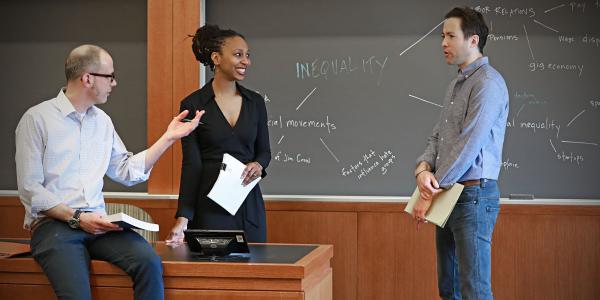In the United States, we continuously hear that families are the backbone of our society. Is this really true? Do our policies and laws really reflect our cultural values?
In comparing our work-family policies to those of other industrialized nations — specifically, Germany, Italy and Sweden — Caitlyn Collins, assistant professor of sociology, identifies a chasm between the U.S. and Europe in support for mothers, fathers and children.
“We talk about families being the most valuable part of our lives, the part that gives us meaning, hope, fulfillment in ways that we don’t get from anywhere else,” Collins says. “However, this rhetoric is not backed up with policies or laws that enable families the time and resources necessary to take care of one another — especially those families who most need support.”
Take Sweden, for example. After having a child, couples receive 480 days of paid leave. “And the government even offers a gender equality bonus for parents who split the parental leave time equally,” Collins says. “It’s literally a cash incentive to get men to take more leave.” Gender equality is a cornerstone of Swedish society. It’s built into their welfare law.
Can you even imagine that here in the U.S.?
“The United States is one of only two countries on the planet that doesn’t mandate maternity leave,” Collins says. “We have no universal child-care system; we have no minimum standard for vacation and sick days, with disastrous consequences on families, especially on the working mothers whom I interviewed.”
How might Americans modernize our cultural attitudes around breadwinning and caregiving? How might we develop the political will to implement policies that would help mothers and fathers be happier and healthier, and by extension do better work? These are among the questions Collins addresses in her new book, Making Motherhood Work: How Women Manage Careers and Caregiving, scheduled for release by Princeton University Press in January 2019.
Investigating complex issues of culture, policy and social inequality is precisely what sociologists are trained to do, and precisely why a sociology department was brought back to the university at this pivotal time in the country’s history, when inequality continues to rise.
This article originally appeared in Washington magazine. Continue reading by following this link.




